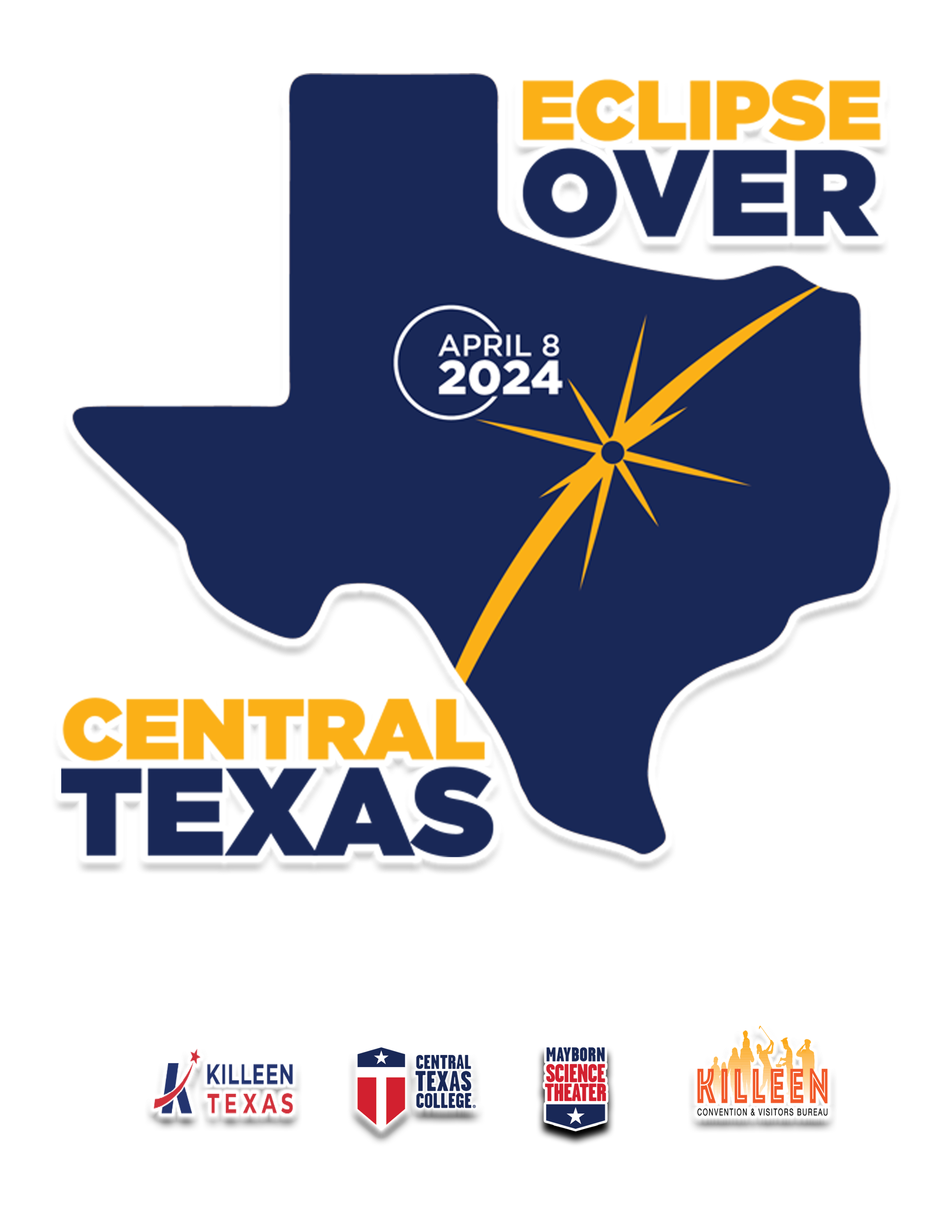

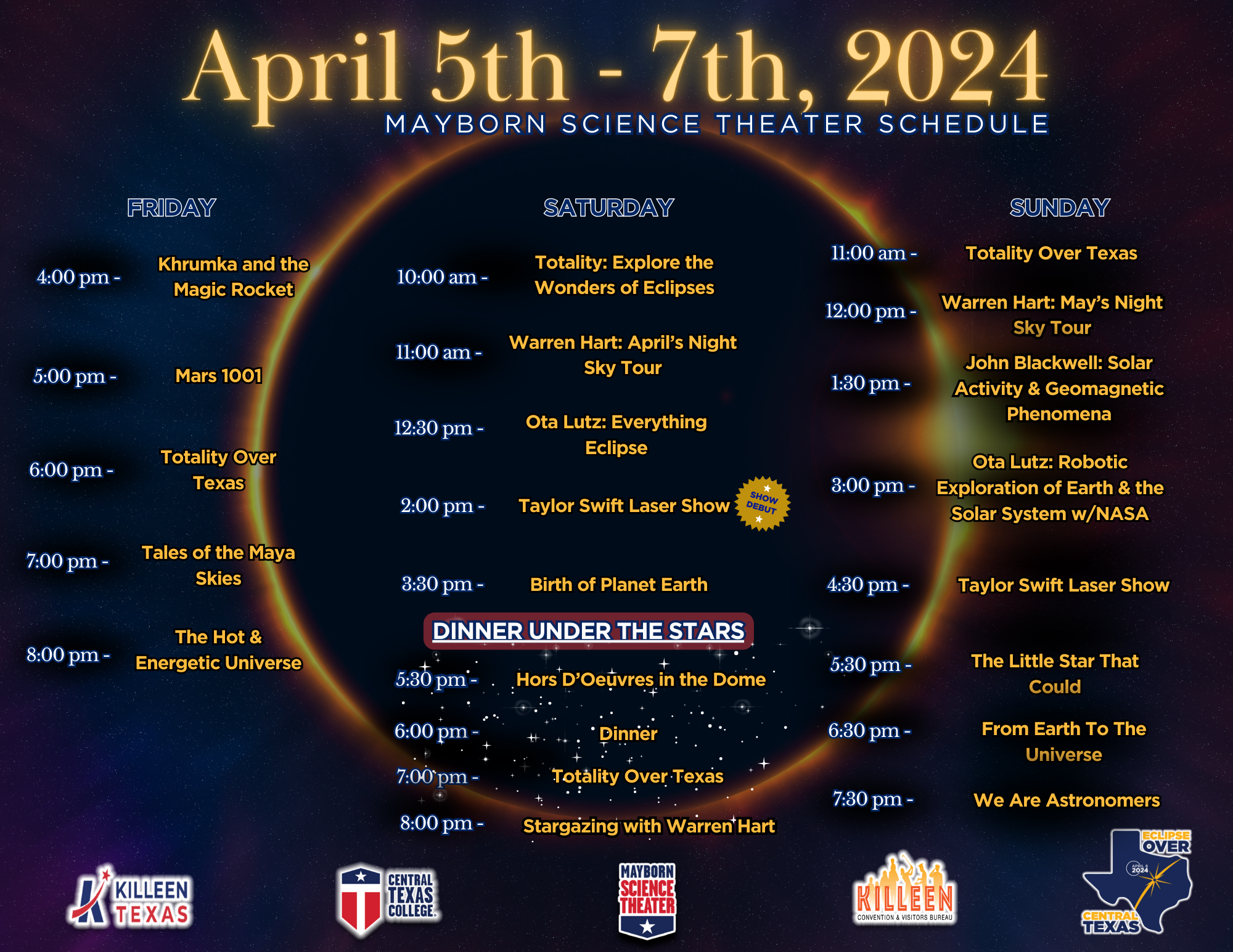
.jpg)
About
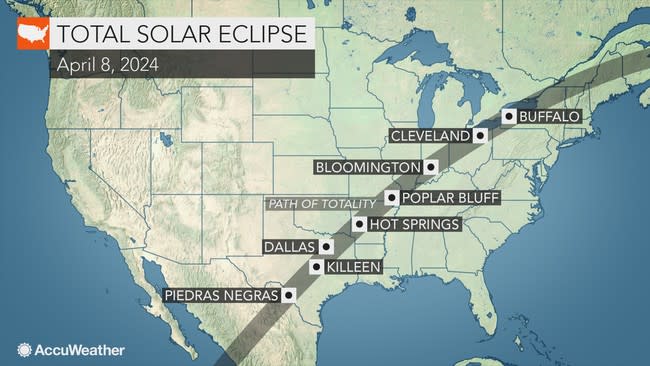
The next total solar eclipse to visit North America comes on April 8, 2024. The duration of totality will be up to 4 minutes and 27 seconds, almost double that of The Great American Eclipse of August 21, 2017. The 2017 total solar eclipse was witnessed by about 20 million people from Oregon to South Carolina, and the upcoming 2024 total solar eclipse is sure to be witnessed by many millions more. Because of what they saw — the exquisite beauty of the Sun’s corona hanging in the suddenly darkened sky — many millions more will know that a total solar eclipse is something truly worth seeing. In the US, totality will begin in Texas at 1:27 pm CDT and end in Maine at 3:35 pm EDT on April 8, 2024. If you’ve not seen a total solar eclipse, put it on your bucket list and mark this date! It is truly a breath-taking sight and you will never regret traveling to see the Sun’s corona.
This phenomena will happen at 1:36 p.m. in Killeen for a duration of 4 minutes and 16 seconds— one of the longest events in the state!
| City | Duration (minutes) |
|---|---|
| Lampasas | 1:35:25 PM CDT |
| Kempner | 1:35:45 PM CDT |
| Copperas Cove | 1:36:00 PM CDT |
Tickets
We are now selling tickets for the shows happening the weekend of the eclipse as well the as the day of! Click here to buy!
Merch
We are offering the items below. Click here to buy!



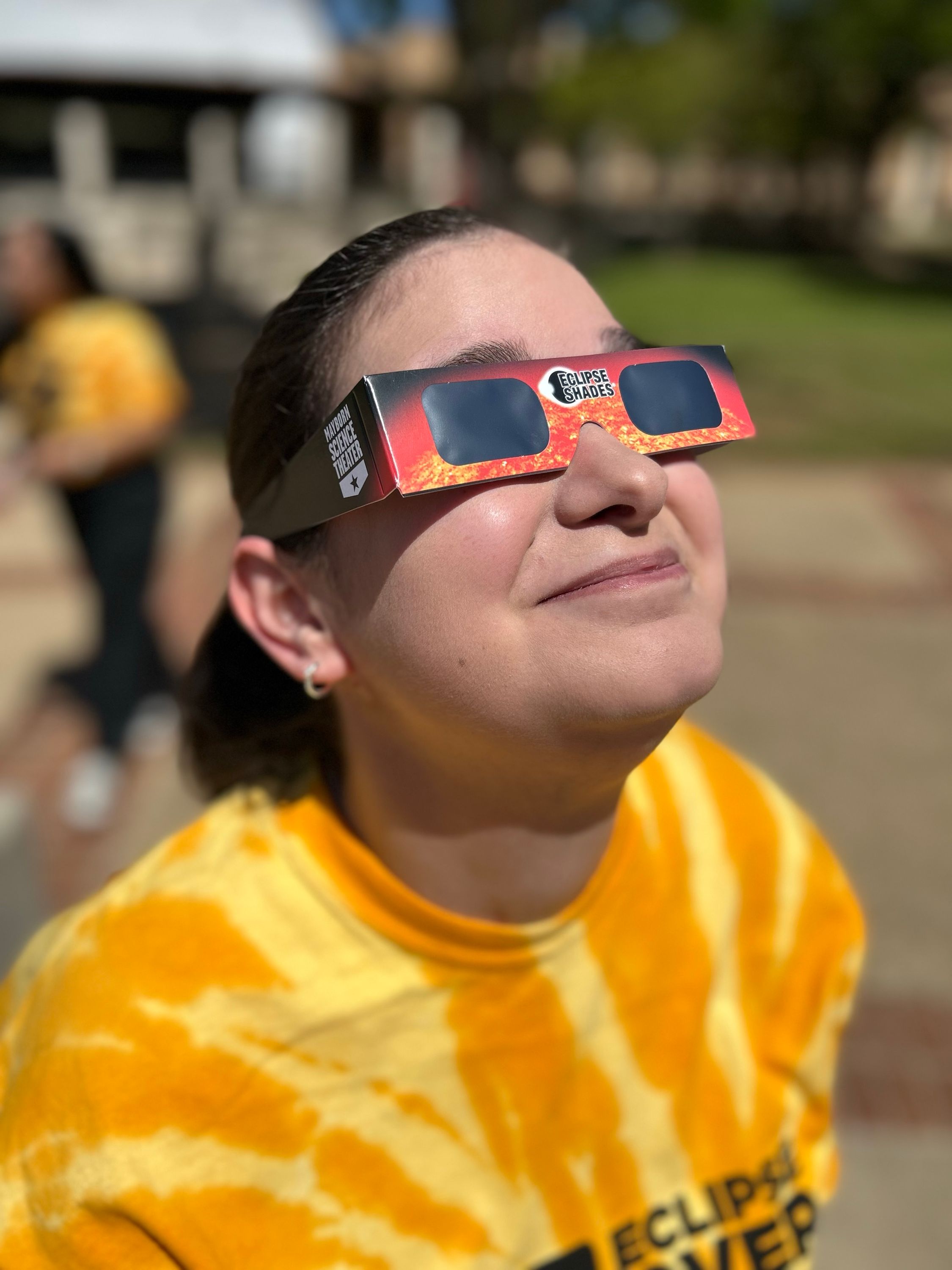

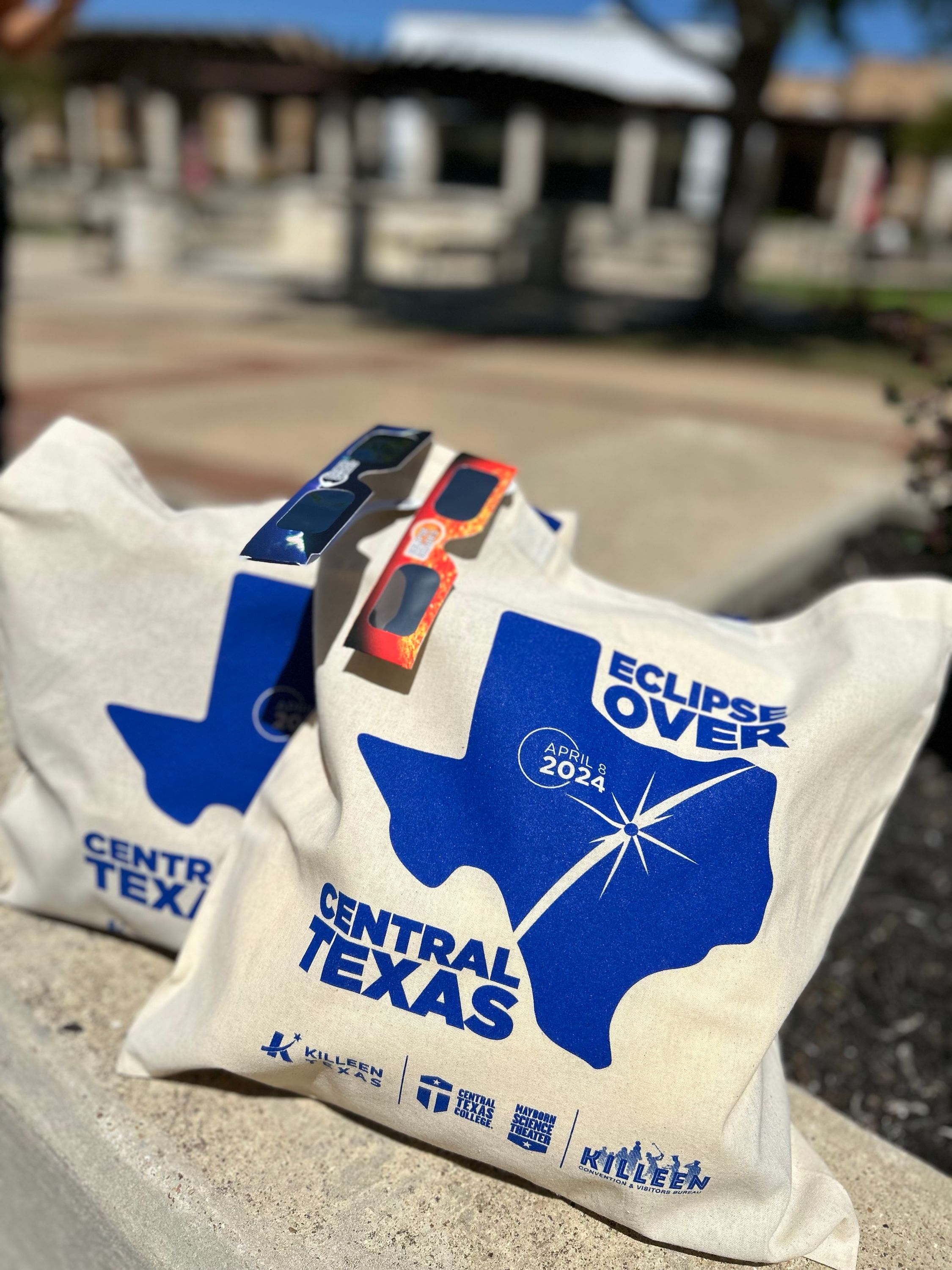
VIP Experience
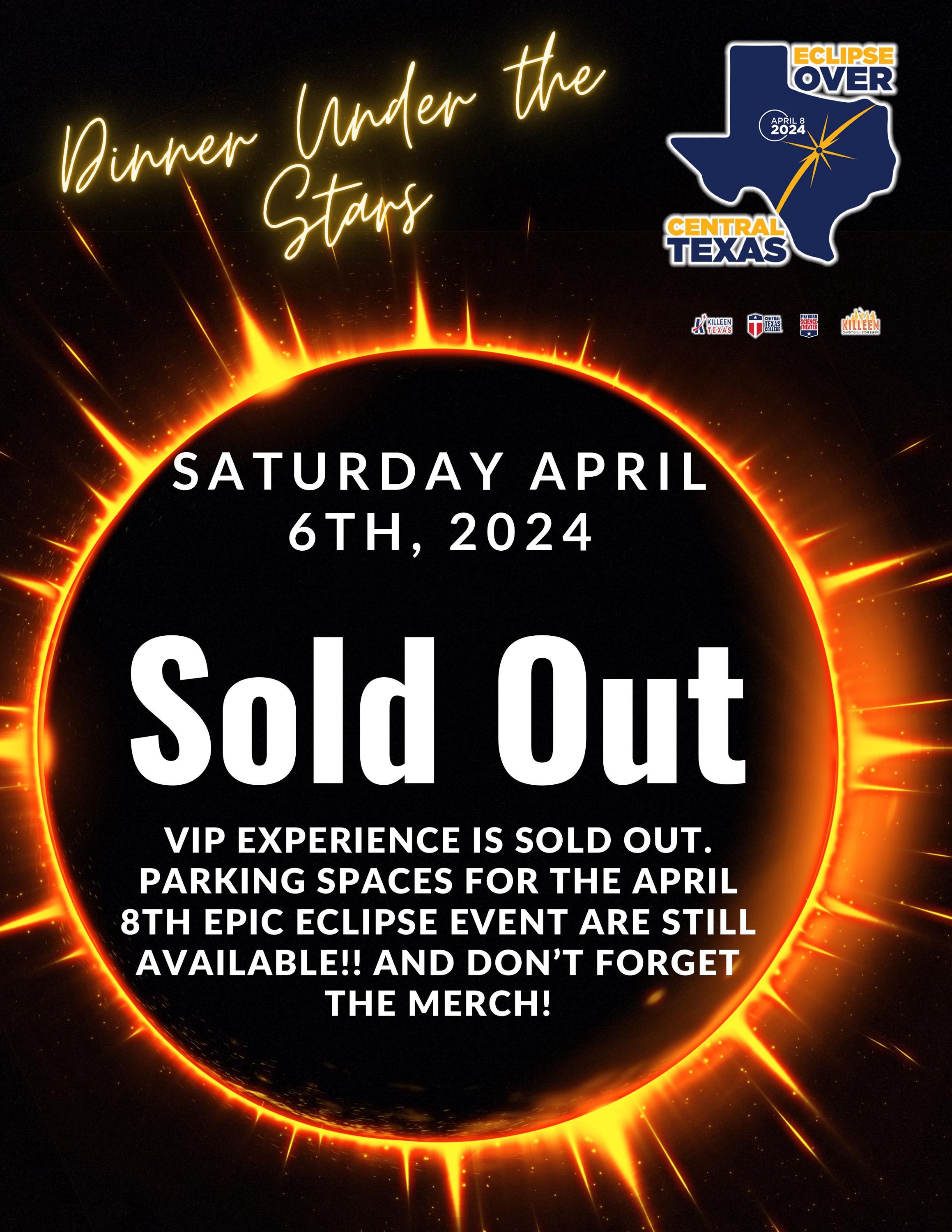
If interested wanting to purchase one of our VIP options please click here.
Parking
To obtain a parking pass please sign up by clicking on the link below. click here.
%201.jpg)
Vendors
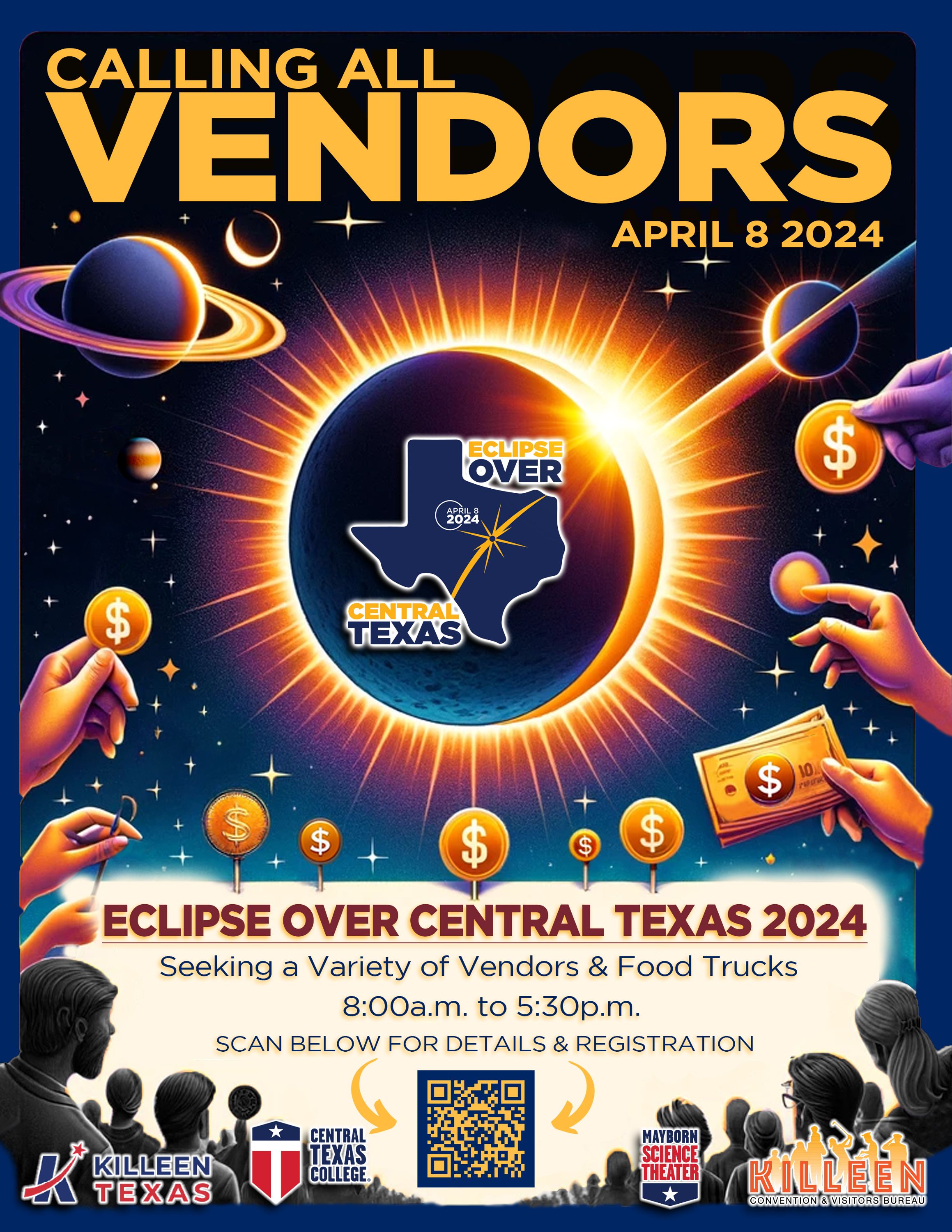
For those interested in being a Vendor or Food Truck for our eclipse event please complete this form. We have a limited number of vendor and food truck spots so this will be a first come first serve space. Once submitted and approved you will be emailed with the next steps.
Presenters
John Blackwell
Observatory Director and Astronomy Teacher, Phillips Exeter AcademyJohn Blackwell is the observatory director and astronomy teacher at Phillips Exeter Academy in New Hampshire. During summer months, he is an active astronomer specializing in variable stars, active galactic nuclei, and solar activity causing geomagnetic phenomena.
Ota Lutz
Manager, STEM Elementary and Secondary Education GroupOta Lutz is the manager of the STEM Elementary and Secondary Education Group for NASA’s Jet Propulsion Laboratory (JPL) in Pasadena, CA. Dr. Lutz earned a bachelor’s degree in Mathematics, a master’s degree in Teaching and Learning, and a Ph.D. in Environmental Science. Dr. Lutz taught high school mathematics for eleven years before joining the NASA education team. Before joining the JPL team, Dr. Lutz worked as an Aerospace Education Specialist at NASA Armstrong Flight Research Center (Edwards, CA) and NASA Johnson Space Center (Houston, TX). Dr. Lutz is interested in inspiring students to become lifelong learners of science, technology, engineering and mathematics.
Warren Hart
Resident Astronomer, Mayborn Science Theater / Central Texas CollegeWarren Hart’s interest in astronomy began while he was training to be a US Air Force Navigator. He learned how to find and use the 58 Navigation Stars to determine the location of the airplanes while flying, primarily over the open oceans. After retiring from the Air Force and moving to central Texas, Warren was hired in April 2006 by the Mayborn Science Theater and Planetarium at Central Texas College. Warren has dedicated his time to educating the community with his vast knowledge of the stars over the last nearly 18 years. He presents on the last Saturday of every month at the Planetarium and does broadcasts for the CTC Library and KNCT 91.3 radio station. This year’s Total Solar Eclipse (Monday, April 8th, 2024) will be Warren’s last big event, as he plans to retire at the end of April 2024.
Press
Complete this form to request a press ID pass and/or parking to the April 8, 2024 Solar Eclipse Over Texas on the campus of Central Texas College. Press passes are limited, and not all requests will be granted. Additional information may be requested by Central Texas College facilities. Press passes are granted to working journalists who intend to cover the event. If your request for a press is approved, you will receive an email message from us within 10-14 business days. If you are requesting multiple press ID passes under one name please add all names to this form.
Safety
Except during the brief total phase of a total solar eclipse, when the Moon completely blocks the Sun’s bright face, it is not safe to look directly at the Sun without specialized eye protection for solar viewing.
Viewing any part of the bright Sun through a camera lens, binoculars, or a telescope without a special-purpose solar filter secured over the front of the optics will instantly cause severe eye injury.
NASA wrote this article about safety during the eclipse. This video also has excellent guidance.
FAQ
At what time will the solar eclipse be seen in Killeen on April 8, 2024?
The optimal time of visibility is at 1:36p.m. in Killeen for a duration of 4 minutes and 16 seconds.
How many visitors are expected in the city/county leading up to and the day of the day of the eclipse (April 8, 2024)?
Killeen’s population is estimated to double (160,000 X 2= 320,000). Bell County’s population is expected to triple.
Will there be safety eyewear/special Eclipse 2024 glasses available?
The City of Killeen encourages citizens to wear the specialized sunglasses for this, and any solar eclipse, event. The city's libraries will be distributing 2,000 solar eclipse glasses at no charge. They will be handed out at informational programs that will be held in March 2024 (one pair per attendee). While people do not have to have a library card to get a pair, they must attend the whole program.
